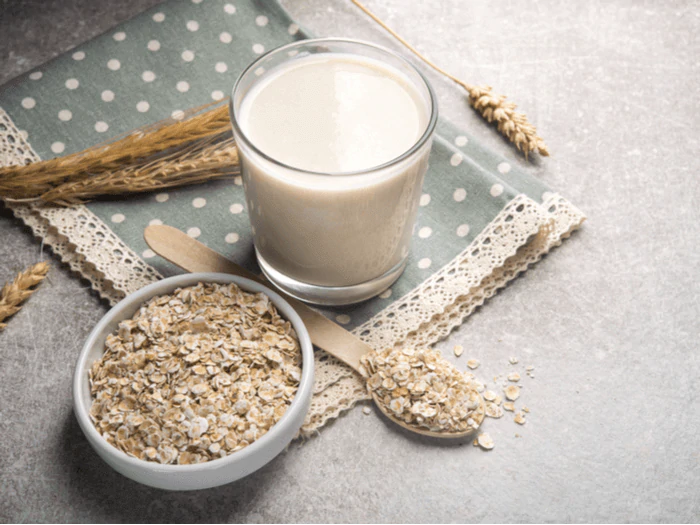



Article by: Hari Yellina
As dairy substitutes become more popular, plant-based milk may eventually make up half of all drinks in Australian cafes, with oat milk leading the drive. Daylen Tuckford, a barista, has been working at a cafe in Williams, Western Australia, for two years. They’ve seen oat milk arrive and grow in popularity during that period. “Oat milk only started really taking over a year or so ago — halfway through the year, I believe,” they added. According to a poll of over 900 cafes, a quarter of Australians will choose plant milk in 2021, with almond topping the list, followed by soy and oat.
Plant milk is on course to capture 50% of the cafe beverages industry in the next four years, according to cafe market researcher Sean Edwards, and oat could soon be Australia’s top-selling dairy replacement. “Oat milk was 0.2 percent two years ago, and today it’s 20% of the market,” Mr Edwards added. “Oat is going to be number one very soon.” Oat will supplant almond within the next six to twelve months. “It’s mostly because when people sample oat, they notice how silky and smooth it is. It more closely resembles dairy than most other plant milks.” Customers may have liked the creamy texture and mild flavour of oat milk, but dairy farmers were less enthusiastic.
“It’s deceptively marketing a product to make it appear popular. Otherwise, you’re not going to win the market “Ian Noakes, WAFarmers dairy president, stated. Despite the dairy industry’s years of lobbying, plant-based milks are not prohibited from using dairy terminology such as “milk” and “creamy” in their labelling. In February, a Senate inquiry suggested that the Australian Competition and Consumer Commission limit the use of meat descriptors such as “beef,” “pork,” and “chicken” for plant protein products, but stopped short of suggesting that dairy descriptors be limited. Despite a 43 percent increase in plant milk consumption over three years, Australians’ dairy milk consumption remains remarkably stable, according to data from the Australian Bureau of Statistics. Plant milk’s rapid expansion, according to Mr Edwards, is not at the expense of dairy.
“I don’t believe dairy has lost volume, but I do believe they have lost market share,” he said. “Due to COVID, there’s been a lot of coffee consumption. The housing market has been booming.” Nonetheless, Mr. Noakes expressed alarm about the changing tendency among dairy farmers. “There’s no doubt that people have turned away from dairy because of carbon [emissions] concerns,” he said. “However, we are working extremely hard as an industry to reduce our carbon footprint.” “I would tell such people to take a break. We will make it.” The rapid growth in oat milk sales has provided an opportunity for Australian growers and processors to join in.
Wide Open Agriculture received $20 million late last year to establish WA’s first oat milk processing facility in Perth. While the oats for its milk are farmed and milled in Western Australia, the milk was processed in Italy before being brought back to Australian stores and cafés. The Perth facility, according to CEO Ben Cole, is the final stage in making oat milk wholly within the state. “It’s all about risk management and provenance. You don’t have long supply chains, currency disruptions, or pandemic-related interruptions, and now you have war in Europe “he remarked. Steven Ford, one of two Western Australian farmers supplying oats to Wide Open Agriculture for oat milk, predicted that many more farms will be required to meet demand.
Because he uses fewer insecticides and fungicides than most WA farms, his oats are sold at a premium and advertised as “regeneratively cultivated.” “It’s fantastic if consumers prefer plant-based milks, and if they can be grown and processed in WA, creating jobs for WA residents,” he said. “If those rewards are there and large enough, it will offer us farmers the opportunity to look into these farming concepts deeper and produce food with greater integrity.” The rise in popularity of plant milk has corresponded with major investment in making it tastier and more convenient to use in cafes. Noumi, which offers dairy, lactose-free, and plant-based milk under the Milklab and Australia’s Own brands, is led by Michael Perich. “It’s due to improved methods and technology that allows it to be more closely linked with dairy milk.” Plant milk multiplication, according to Daylen Tuckford, is difficult to master. “When you’re utilising other milks, you can really tell. Some kinds separate easier and froth better than others ” he stated.